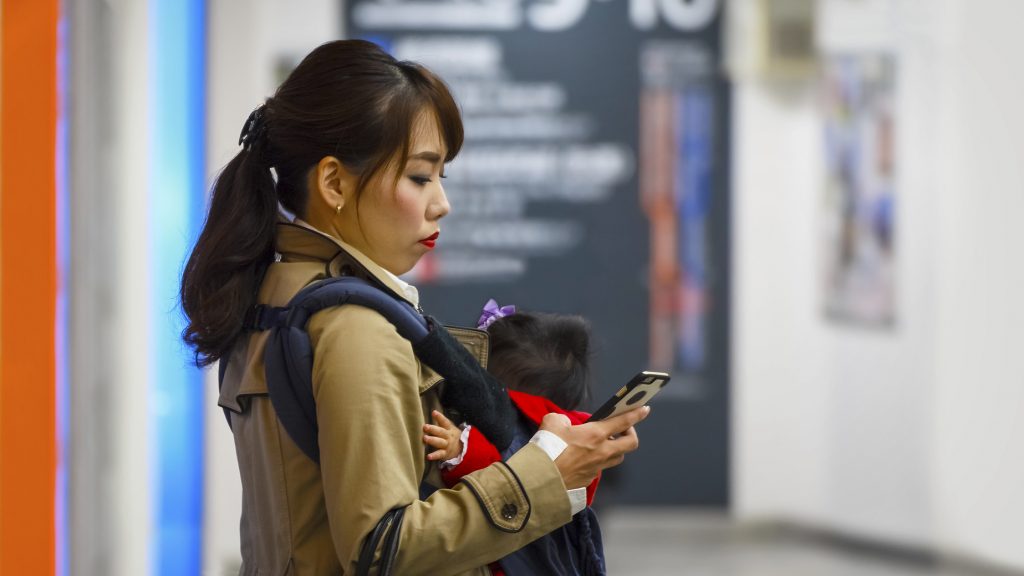5 Things I Learned From Being A Nanny In Tokyo
Keeping two kids safe in a metropolis is bound to have ups and downs
What’s it like to work as a nanny for an expat family in a big city? When I arrived in Tokyo eight months after quitting my publishing job and traveling around the world, I had one objective — to do something I hadn’t done before. But I didn’t expect to learn as much as I did.
When I started hunting for part-time jobs in Tokyo upon my arrival — on Craigslist, at recruitment agencies and through word-of-mouth tips — I stumbled across nannying. With plenty of experience looking after my dozen nieces and nephews, it sounded like a breeze. “Famous last words,” I hear you all say. But I thought it would be fun to learn a different side of life in Tokyo — especially what it’s like to raise kids as an expat family in Japan.

I started by posting a profile on a website called Great Au Pair that lets families and potential nannies meet each other in cities around the world. City: Tokyo. Languages: English. Experience: Non-professional. I posted a photo and a short background about myself and hoped I’d find a nice family.
A few days later I received an invitation to meet a French family with two young girls, 5- and 3-years-old. I visited their house and over a cup of tea, we swapped notes. They were raising their kids bilingual and looking for a native English speaker. The parents were smart, hardworking expats — in fact, the reason they were in need of a nanny was because the mom was going back to a company job. We decided on my start date and my life as a Tokyo nanny began.
Lesson 1: What’s normal to you is new to me
For the first few days, I shadowed the mom as she showed me the ropes. The family had only been in Tokyo a few months, but their routine was already down pat. The kids were set up in French-speaking schools where their friends were fellow expat kids and children with one foreign parent.
Together, we collected them from school, played with them, fed and bathed them and put them to bed. I jotted down notes because there was a lot to jam into my head, from street directions and schedules to how often to wash their hair and when they should be wearing socks.
I wasn’t their indulgent aunt but I wasn’t their stern teacher either; I was a childcare worker but part of the family, a more personal role.
While their well-organized life seemed logical, over the first couple of weeks I managed to screw up a few things and I quickly realized that what’s normal to one person can be new to another. As someone whose nephews run around a farm barefoot, remembering to make the kids wear slippers in the house so their feet don’t get cold took some effort.
At first, I wasn’t entirely sure of what a nanny looked like in the details — I wasn’t their indulgent aunt but I wasn’t their stern teacher either. I was a childcare worker but part of the family, a more personal role than if I was working at a daycare center. I was nervous all the time.
Lesson 2: Communication is key
It took a while for the mom and I to find our communication groove and figure out what needed to be explained; some things only became obvious when I didn’t do them or did them differently.
While I’m not a frequent texter in regular life, I quickly realized it’s best to err on this side when someone has left their children in your care. The mom checked in often and I responded to her level of communication by letting her know when I was leaving to pick them up from school, when they were successfully retrieved and as their moods and activities changed.
The mom checked in often and I responded to her level of communication.
The kids and I were also finding our feet with each other. The oldest spoke English but the youngest didn’t. This language barrier made it harder for me to give her instructions and offer comfort.

For instance, during the first couple of weeks, she cried hysterically when I started collecting her from nursery school without her mama. She would get herself into such a state that some days I felt hopeless of her ever trusting me. Her teacher and even other moms (who all spoke French) were able to calm her, but my lack of her native language seemed to be a barrier.
Finally, one day when she saw me, her bottom lip trembled — and then stopped. I was over the moon. After about a month, she was happily chatting to me in French and picking up a few English words.
Lesson 3: There’s a reason why parents in Tokyo prefer carriers over strollers
As the girls became more comfortable with me, they started testing my boundaries. I had to figure out something that no doubt every parent learns through trial-and-error: when to be strict and when to let it go.
They were really well-behaved, but they were still kids. One of the girls got off the bus grumpy one day and when I refused to buy a snack from the convenience store because we already had some, there was a mini tantrum in the street. Other days she thought it was fun to run ahead in the train station.
The station, in particular, became a battleground. I steeled myself before every trip. The ride was only two stops, but the kerfuffle at either end made it feel longer. Trying to fold up an uncooperative stroller, keep an eye on two bouncing children while people rushed past us on a narrow Iidabashi street, carry the stroller plus school bags down the stairs (keeping one hand free in case either tripped) — it felt Herculean.
I was surprised at how often — in a harmonious society like that of Japan — people continued to just press past.
One Japanese station attendant noticed my daily struggle and started offering his assistance. “Helping?” he would say, by way of an offer, and sweep up the stroller. Unfortunately, he was the only person who ever offered. I was surprised at how often — in a harmonious society like that of Japan — people continued to just press past. I resolved to always help if I saw someone in my shoes in the future.

I also came to understand why parents in Tokyo put their babies in carriers. As I watched young moms get on and off trains and buy groceries with their babies snugly tucked against their chests — while I manhandled a stroller — I wished my 3-year-old was small enough to be carried, too.
Lesson 4: Kids will get hurt no matter what you do
One night, the youngest slipped in the bath and cracked her front tooth. It was a small disaster. Her mom happened to be home, so she administered first aid. But she also asked a lot of questions: How did it happen? Why did she jump? I felt terrible that it was on my watch. Should I have been more strict?
The parents were naturally upset, but they were reasonable people and understood it was an accident. Nevertheless, the moment I left the house I was in tears, frustrated and worried about whether it would damage our relationship.
I messaged a local friend with children. “Kids will get hurt no matter what you do,” she reassured me.
For a few days the youngest was wary of me, associating me with “the tooth incident.” After some time on soft foods, the tooth healed well. I felt a bit nervous around the mom, worrying that she would trust me less, but things quickly returned to normal.
Lesson 5: Sometimes the hard thing is the best thing
Suddenly, it was my last week. I’d been offered an editing job at an English newspaper (one of the recruitment agencies I’d signed up with months before had contacted me out of the blue) and while I felt torn about leaving the girls, this was also the kind of career opportunity I had dreamed about. On my last day, they were so excited to be seeing their grandparents that there was no need for them to know I wouldn’t be back. Ironically, they were sweeter than ever, lavishing me with hugs and kissing my cheek.
I waved them off with sadness. But after the emotional rollercoaster of our short two months together, I also felt like I could exhale and take some time to think about all the great things I had learned.
I’d learned about working through differences in domestic routines, how important it is to ask questions and how to communicate boundaries and expectations when at least one person in the room doesn’t speak your language. I’d also learned heaps about time management in a busy city like Tokyo (schools here don’t wait!). These attitudes have continued to serve me well in my current job — and will no doubt continue to do so in the future.
But more than anything, my respect for all the childcare workers and teachers here in Tokyo had grown immensely, as I’d watched them work long hours in small spaces, pouring their hearts into the kids they were responsible for — a harder job than it seemed.
Have you ever had a temporary job in Japan that taught you more than you could expect and changed your life direction in one way or another? Send us an email to editorial@gplusmedia.com with a title “Lessons learned on the job” for a chance to be featured on the site.
















Leave a Reply